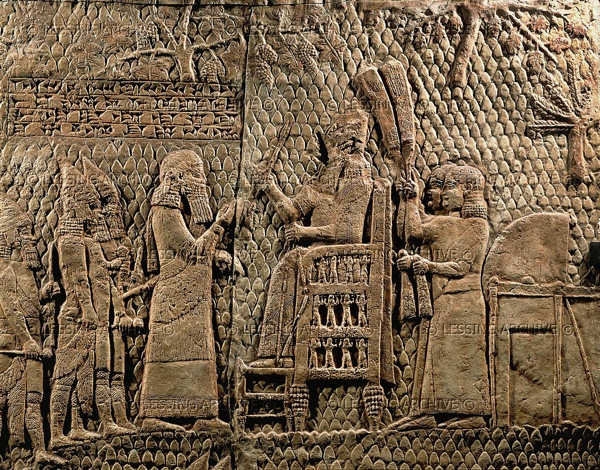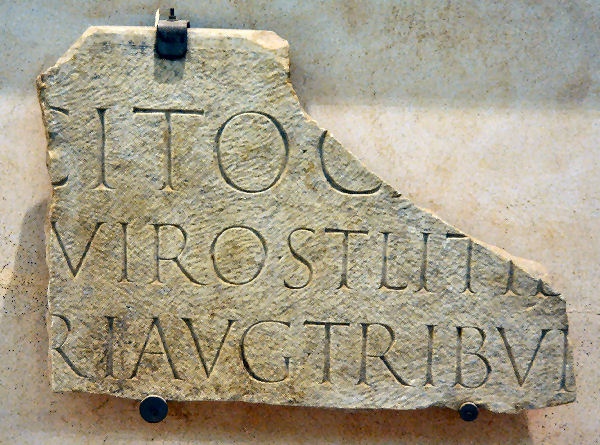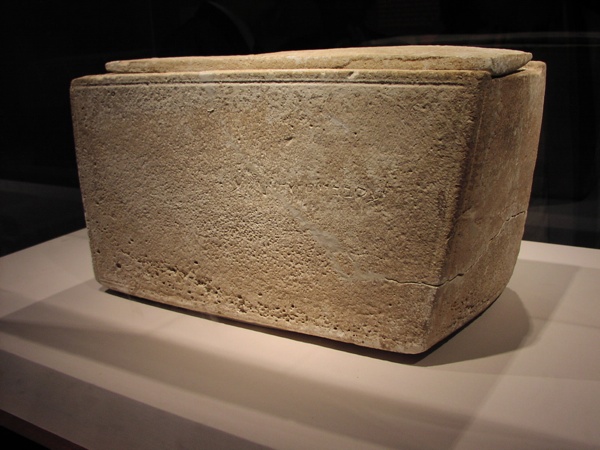 Creepy
Creepy  Creepy
Creepy  Movies and TV
Movies and TV 10 Movies That Get Elite Jobs Right, According to Experts
 Weird Stuff
Weird Stuff 10 Times Real Laws Were Based on Bizarre Hypotheticals
 Animals
Animals 10 Inspiring Tales of Horses Being Human
 Mysteries
Mysteries Top 10 Haunting Facts About the Ghost Ship MV Alta
 History
History 10 Surprising Stories About the Texas Rangers
 Humans
Humans 10 Philosophers Who Were Driven Mad by Their Own Theories
 Miscellaneous
Miscellaneous 10 Video-Game-Worthy Weapons and Armors from History
 Weird Stuff
Weird Stuff 10 Psychics Who Accurately Predicted Wartime Events
 The Arts
The Arts 10 Pieces of Art Inspired by a Broken Heart
 Creepy
Creepy 10 Death Superstitions That Will Give You the Creeps
 Movies and TV
Movies and TV 10 Movies That Get Elite Jobs Right, According to Experts
 Weird Stuff
Weird Stuff 10 Times Real Laws Were Based on Bizarre Hypotheticals
Who's Behind Listverse?

Jamie Frater
Head Editor
Jamie founded Listverse due to an insatiable desire to share fascinating, obscure, and bizarre facts. He has been a guest speaker on numerous national radio and television stations and is a five time published author.
More About Us Animals
Animals 10 Inspiring Tales of Horses Being Human
 Mysteries
Mysteries Top 10 Haunting Facts About the Ghost Ship MV Alta
 History
History 10 Surprising Stories About the Texas Rangers
 Humans
Humans 10 Philosophers Who Were Driven Mad by Their Own Theories
 Miscellaneous
Miscellaneous 10 Video-Game-Worthy Weapons and Armors from History
 Weird Stuff
Weird Stuff 10 Psychics Who Accurately Predicted Wartime Events
 The Arts
The Arts 10 Pieces of Art Inspired by a Broken Heart
8 Reasons Jesus Definitely Existed
The quickest way to get a reaction in the modern world is to shout ‘religion!’ on a crowded server. From diehard fundamentalists to rabid atheists, the internet is a breeding ground for lunatics—all of whom will throw the world’s most-condescending temper tantrum if you question their insanity. Luckily, when it comes to answering some of the most important questions in history—such as ‘did Jesus really exist’—we have centuries of work by scholars and archaeologists to build on, such as:

Using one part of the Bible to back up another might seem counterintuitive, but it’s not as insane as it might first appear. For one thing, Paul’s letters are the earliest writings on Christianity, predating the Gospels by some fifty years. Also, we know he existed. Textual analysis of the epistles proves at least seven of them were written by one guy; and Paul’s historic efforts to open the new church to gentiles are the main reason you’re not reading this in, say, Hebrew. But the biggest thing Paul has going in his favor is his ego. Rather than detail the life story of Jesus, Paul prefers talking about himself—including descriptions of his conversion and travels. Travels which, by the way, include two brief meetings with Jesus’ brother James. Since James’ existence would have been objectively verifiable to Paul’s readers, the likelihood he made him up is somewhere around ‘zero’—especially since both meetings seem to go quite badly.

I’ve mentioned before how the Gospels kinda don’t agree on anything. Some see this as the final nail in historical-Jesus’s coffin; but for others, these screw-ups point in exactly the opposite direction. Take the Gospel of Mark—several times, Mark quite clearly states that Jesus came from Nazareth. A few decades later, Luke and Matthew decide, nu-uh, Bethlehem is where it started. Trouble is, there’s no historical record of anything they say happened there—the census, the slaughter of the innocents—ever, well, happening. On the other hand, there does exist an ancient prophecy saying the messiah would be born in Bethlehem. Not exactly subtle, is it? However, these shenanigans actually give more credence to Mark’s account. It’s called the criterion of embarrassment—basically, the idea that you’d be unlikely to make up something that makes you look bad. Since Nazareth is the ‘wrong’ town for Jesus to come from, Mark would’ve claimed a fictional Jesus came from Bethlehem. That he didn’t suggests his writing was at least grounded in reality.

Like a birthplace in the sticks, the Baptism is another feature of Jesus’ story that doesn’t tally with Biblical prophecy. At the time, the idea of a spiritually inferior person baptizing a superior one was completely unheard of. Having the messiah baptized by anyone would be seen more as humiliation than humility. Nowadays, we see it as an early sign that Jesus was the humble guy he later turned out to be—but in ancient Judea, that would’ve been a hard sell. A writer looking to recruit people to his newly made-up church would have probably had Jesus flying over the river, shooting fire and doing backflips while giving John the finger. The fact it’s such a step down for the ‘son of God’ suggests it’s probably based in fact—even if it’s been distorted in the centuries since.

Josephus was a 1st century Roman-Jewish historian who’s most-famous passage is the Testimonium Flavianum—an ‘early’ reference to Christ that’s probably a fake. So why bring him up at all? Well, Josephus’s works also include a much less-famous passage that’s definitely genuine. Buried deep in Book 20 of his Antiquities of the Jews is a passing reference to the execution of “the brother of Jesus, who was called Christ, whose name was James”. That’s as far as it goes. But, like Paul above, it confirms the historical existence of James and therefore Jesus. And it’s almost universally acknowledged to be genuine—here’s the world’s leading scholar on Josephus explaining why it couldn’t be a fake. It might tell us very little, but it at least gives us a starting point—especially when combined with stuff like:

Tacitus was the Roman equivalent of The History Channel and National Geographic all rolled into one brainy, cynical guy. Over a stupefying number of books, his Annals describe life under Tiberius, Nero and other lunatics, while also dealing with day-to-day existence in Rome. Significantly, that includes the period surrounding the Great Fire. For those of you who hate clicking on links, the important bit goes:
“Nero fastened the guilt and inflicted the most exquisite tortures on a class hated for their abominations, called Christians by the populace. Christus, from whom the name had its origin, suffered the extreme penalty during the reign of Tiberius at the hands of one of our procurators, Pontius Pilatus.”
That’s the first reliable account of the crucifixion in history. Although he doesn’t cite his source, Tacitus had access to a heck-load of official documents and almost always noted when he was using hearsay. Since everyone but the most-insane of scholars accept this passage as genuine, it establishes the crucifixion as a historical event—one widely known even by A.D. 64. Furthermore, recently physical evidence was found proving the existence and presence of Pilate just where the Gospels say he was.

If you’re above a certain age, you might remember the 2001 discovery of an ancient bone box inscribed with the words ‘James, son of Joseph, brother of Jesus.’ For those of you that aren’t—you should know that the world went nuts. Here was undeniable proof of Jesus’s historical existence. Then, in 2004, Israeli police arrested the Tel Aviv collector who found it on suspicion of forgery. So much for that, huh?
Not exactly. Last year, an Israeli court threw out the case when it became apparent most of the ‘expert witnesses’ were either lying or just plain wrong. The ‘smoking gun’ was a fake inscription that turned out to be nothing of the sort, and more tests are now being done to figure out (again) if the box is genuine. Now, we still currently don’t know if it’s real—only that it’s not a deliberate, modern fake. But if it turns out to be the real deal, it could yet prove to be the most important religious find of the century.

Despite most of the ‘big ones’ having been around for centuries, new religions are always cropping up. Mormonism, Scientology, Rastafarianism, cults like The Manson Family or North Korea’s creepy ‘Kim’ cult… and nearly all of them have one thing in common: they stem from a single, real individual. By contrast, movements with no grounding in reality whatsoever are much rarer. And sociologists have noticed this. By tracing how modern religions grow, they can make assumptions about their older cousins—including the importance of having a living, breathing figurehead. Think about it. It’s a lot easier to get people onboard your new movement if they can see your leader is an actual person and not, y’know, completely made up. But even if you don’t accept the logic of that, it’s worth remembering how utterly alien Jesus’s teachings were compared to any other branch of first century Judaism. Such a great mental leap had to come from someone, somewhere so Paul could get so fired up about it ten years later. For all intents and purposes, you might as well call that ‘someone’ Jesus.

For all his reported ability to kill things with the power of words, Gospels’ Jesus is basically the Aquaman of Biblical figures. Compared to, say, King David, his awesomeness-to-piousness ratio is sadly lacking. And that’s important, because the Messiah was prophesied to be a warrior king who would flush the scum out of Jerusalem and bring about God’s kingdom on Earth. By contrast, Jesus rides around on a donkey and is executed before he can get anything done. Remember the criterion of embarrassment? In the first century, crucifixion was a humiliating way to die. Anyone writing Jesus from the ground up would have had him go out in a one-on-one fistfight with Julius Caesar or something. As scholar Bart Ehrman puts it: “The Christians did not invent Jesus. They invented the idea that the messiah had to be crucified.” Basically, early Christians were so embarrassed by the crucifixion they did everything they could to turn it into a victory. Hell, they probably wished they had just made him up—it would’ve saved them all a lot of trouble.








